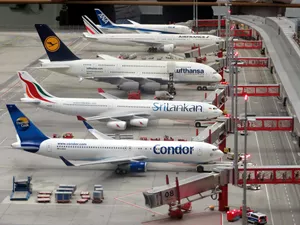Government Makes New Amendments to Aeronautical Code
The measure aims to align Argentine regulations with the results of international audits conducted in recent years.

On October 22, 2024, the Executive Branch published Emergency Decree 941/2024 in the Official Gazette, including new changes to the Aeronautical Code. These amendments continue the process initiated by Emergency Decree 70/2023 (see our comments on ‘The Government upends the Argentine aeronautical policy’), with the primary goal of strengthening local regulations in the field of operational safety.
Emergency Decree 941/2024 highlights that, following the Operational Safety Surveillance Audit conducted by the International Civil Aviation Organization (ICAO) in 2022, it was determined that the National Civil Aviation Administration (ANAC) was below the global average in complying with ICAO standards and procedures, particularly in the areas of civil aviation organization and aircraft operation.
Additionally, the Emergency Decree mentions that the inspection the United States Federal Aviation Administration (FAA) carried out in April 2024, whose findings the Government considerers in urgent need of resolution, need to be urgently corrected. As a result, the amendments to the Aeronautical Code aim to meet the requirements specified in the audits to establish a safe open skies policy.
Among the changes introduced, the Executive Branch ordered repealing article 108, and introducing a new article regulating ANAC’s functions in the ‘General’ part of the Code, in accordance with Common Law laws.
The new article 2 ter of the Aeronautical Code provides that ANAC may delegate functions related to medical evaluations, airworthiness, and operational certifications to individuals or legal entities. For this purpose, conditions of competence, requirements to be met, and procedures to oversee the fulfillment of delegated tasks must be defined.
Additionally, article 12 of the Aeronautical Code has been amended, with its new wording specifying that ANAC has the authority to detain or prohibit the flight of an aircraft or air operation that does not meet the required conditions. It also establishes that operators and public and private entities in the aeronautical sector are obligated to cooperate with ANAC, facilitating its duties through duly identified inspectors.
The Emergency Decree also replaces article 76, allowing ANAC inspectors to temporarily suspend the activities of aeronautical personnel if they detect non-compliance with applicable regulations. In such cases, the inspector may retain the personnel's license until corrective measures have been implemented, leading to the temporary suspension of the personnel's qualifications.
Finally, article 208 has been updated to explicitly reference the two branches of civil aviation: commercial and non-commercial.
This insight is a brief comment on legal news in Argentina; it does not purport to be an exhaustive analysis or to provide legal advice.